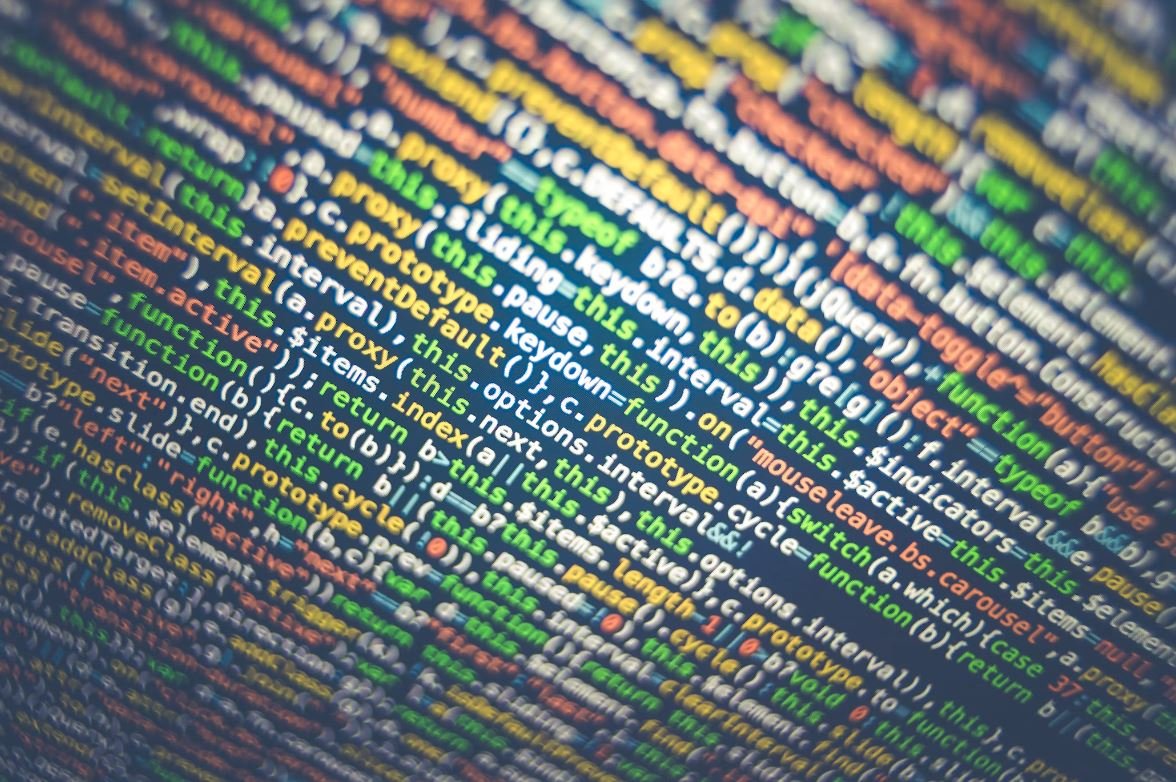Artificial Intelligence or Computer Science
In today’s rapidly advancing technological landscape, two fields that have garnered significant attention are Artificial Intelligence (AI) and Computer Science (CS). While often used interchangeably, there are distinct differences between these two disciplines. Understanding these differences and their respective applications can help individuals determine which field aligns best with their interests and career goals.
Key Takeaways
- Artificial Intelligence (AI) and Computer Science (CS) are distinct fields with different focuses and applications.
- AI is concerned with developing intelligent machines that can mimic human intelligence and perform tasks autonomously.
- CS covers the study of algorithms, programming, and the design and development of software systems.
- Both AI and CS have vast career prospects and offer numerous opportunities for professionals in various industries.
**Artificial Intelligence**, often abbreviated as AI, is a branch of computer science that deals with the creation of intelligent machines capable of performing tasks that typically require human intelligence. AI focuses on the development of algorithms and models that enable machines to learn from data, reason, perceive, and make decisions. *This rapidly evolving field encompasses applications such as natural language processing, computer vision, speech recognition, and machine learning algorithms.*
**Computer Science**, on the other hand, is a broader field that encompasses the study of algorithms, software development, programming languages, and computer systems. It involves designing and developing software applications, databases, and operating systems. CS professionals work with various programming languages, hardware systems, and computer networks to solve complex problems and create efficient computing solutions. *Computer Science lays the foundation for various technological advancements, including AI.*
Artificial Intelligence vs Computer Science: A Comparison
| Artificial Intelligence | Computer Science |
|---|---|
| Focuses on building intelligent machines | Encompasses a broad range of computing concepts |
| Develops algorithms for learning and decision-making | Designs and develops software systems and applications |
| Includes areas such as natural language processing and machine learning | Includes areas such as databases and operating systems |
Artificial Intelligence and Computer Science share some common areas of study, but their primary focus and applications differ. While AI concentrates on building intelligent machines and developing algorithms for learning and decision-making, CS encompasses various computing concepts, software development, and system design.
Despite their differences, both AI and CS offer promising career prospects. Individuals interested in working with cutting-edge technologies, developing advanced algorithms, and solving complex problems might find AI to be the right fit for them. On the other hand, those passionate about software development, system design, and computer systems may find Computer Science to be a better choice. Both fields hold immense potential for growth and innovation.
Career Opportunities in AI and CS
- AI Career Opportunities:
- Machine Learning Engineer
- Data Scientist
- Natural Language Processing Specialist
- Computer Vision Engineer
- CS Career Opportunities:
- Software Developer
- Database Administrator
- Network Administrator
- Systems Analyst
**AI** offers career paths such as Machine Learning Engineer, Data Scientist, Natural Language Processing Specialist, and Computer Vision Engineer. *These roles involve leveraging AI techniques and technologies to build intelligent systems and analyze large datasets to derive valuable insights.*
**Computer Science** offers career paths such as Software Developer, Database Administrator, Network Administrator, and Systems Analyst. *Professionals in these roles design, develop, and maintain software applications, databases, networks, and systems to support various business operations.*
AI and CS in Industry
| Industry | Aritificial Intelligence | Computer Science |
|---|---|---|
| Healthcare | AI-driven diagnostics and personalized medicine | Health information systems and electronic medical records |
| Finance | Automated trading systems and fraud detection | Financial software systems and risk analysis |
| Transportation | Autonomous vehicles and traffic optimization | Routing and logistics software |
AI and CS have made significant contributions in various industries, revolutionizing the way businesses operate and provide services. In the healthcare sector, AI drives diagnostics and personalized medicine, while CS supports health information systems and electronic medical records. In finance, AI powers automated trading systems and fraud detection, while CS enables the development of financial software systems and risk analysis tools. In transportation, AI paves the way for autonomous vehicles and traffic optimization, while CS plays a role in routing and logistics software.
Ultimately, whether it’s AI or CS, individuals interested in technology, innovation, and problem-solving will find numerous opportunities for growth and impact. Understanding the distinctions between these fields allows individuals to make informed decisions about their educational and career paths.

Common Misconceptions
Artificial Intelligence
One common misconception about Artificial Intelligence (AI) is that it refers to humanoid robots or machines with human-like consciousness. In reality, AI is the simulation of human intelligence processes by machines, which can include robots but encompasses a much broader scope of applications.
- AI does not require physical embodiment
- AI is designed to mimic cognitive functions, not human emotions
- AI can be used in various industries, not just robotics
Computer Science
Computer Science is often misunderstood as synonymous with programming or coding. While coding is a crucial part of Computer Science, this field encompasses much more than just writing code and includes areas such as algorithms, data structures, database management, and network security.
- Computer Science is a multidisciplinary field
- Programming is a tool used in Computer Science, but not the only focus
- Computer Science covers theoretical and practical aspects of computing
Artificial Intelligence vs. Singularity
Another misconception is assuming that Artificial Intelligence and the concept of Singularity are one and the same. Singularity refers to a hypothetical point in the future where AI progresses to a level of superintelligence, surpassing human capabilities. However, AI as we know it today does not automatically lead to Singularity.
- Singularity is a speculative concept, not a current reality
- AI development can progress without reaching Singularity
- Ethical considerations arise with the idea of Singularity
Job Replacement
There is a widespread fear that AI and computer science advancements will lead to widespread job loss and unemployment. While AI can automate certain tasks and change the nature of some job roles, it also creates new opportunities for job creation and augmentation of existing tasks.
- AI will require humans to oversee and manage its development and applications
- New job roles will emerge due to advancements in AI
- Human skills such as creativity and empathy remain in demand
Privacy and Security
Some individuals mistakenly assume that AI and Computer Science pose a significant threat to privacy and security. While it is true that these technologies can raise concerns, addressing privacy and security issues is an essential part of their development and implementation.
- AI can be designed with privacy and security safeguards
- Security vulnerabilities are not unique to AI or Computer Science
- Increased focus on ethical and responsible AI development

The Growth of Artificial Intelligence
Artificial Intelligence (AI) has experienced exponential growth over the past few decades. This table highlights some interesting statistics on AI development and its impact on various industries:
AI Applications in Different Industries
This table showcases the wide range of industries that have embraced AI technology and the specific applications within each industry:
Top Programming Languages for AI Development
Programming languages play a crucial role in AI development. This table presents the most widely used programming languages in the field of AI:
Evolution of Computer Science Disciplines
Computer Science is a rapidly evolving discipline, encompassing various subfields. This table traces the development of different computer science disciplines over time:
AI Startup Funding by Industry
Investment in AI startups has skyrocketed in recent years, with different industries pouring significant capital into this technology. This table illustrates the sectors that have been major contributors to AI startup funding:
Popular AI Assistants and their User Base
AI personal assistants have become commonplace, making daily tasks more efficient. This table showcases some well-known AI assistants and their user bases:
Gender Diversity in AI
The representation of gender in the AI field has gained attention in recent years. This table highlights the gender diversity statistics among AI professionals:
AI Hardware Market Share
As the demand for AI technology rises, the market for specialized AI hardware has flourished. This table presents the market share of leading AI hardware manufacturers:
AI Research Publications by Country
Research output plays a vital role in the advancement of AI. This table reveals the countries leading the way in AI research publications:
AI and Job Displacement
AI’s impact on the job market has been the subject of numerous discussions. This table explores the potential job displacement across different industries due to AI implementation:
Artificial Intelligence and Computer Science are rapidly transforming our world. From significant advancements in AI technology to the integration of intelligent systems in various industries, the impact is far-reaching. This article provided various tables displaying essential data and insights related to the growth, applications, programming languages, funding, and societal aspects of AI. By understanding these trends and developments, we can better appreciate the implications and potential of AI-driven technologies.
Frequently Asked Questions
Artificial Intelligence
What is Artificial Intelligence (AI)?
What are the different branches of AI?
- Machine Learning: Algorithms that enable computers to learn from and make predictions or decisions based on data.
- Natural Language Processing: Focusing on enabling computers to understand and process human language.
- Computer Vision: Concerned with enabling computers to interpret and understand visual information from images or videos.
- Expert Systems: Developing AI systems that can mimic human expertise and perform tasks requiring specialized knowledge.
What are the benefits of AI?
- Automation of repetitive tasks, which can improve efficiency and reduce human error.
- Enhanced productivity and accuracy in various industries.
- Faster and more efficient decision-making processes.
- Improved customer experiences through personalized interactions and recommendations.
- Advancement in medical diagnoses and treatments.
- Exploration of complex datasets in fields like astronomy, genetics, and climate science.
What are the ethical considerations with AI?
- Privacy and data protection concerns.
- Algorithmic bias and discrimination.
- The impact on employment and job displacement.
- Transparency and accountability of AI systems.
- Autonomous weapons and military applications.
- Fair distribution of the benefits and risks associated with AI.
Computer Science
What is Computer Science?
What are the major areas of Computer Science?
- Software Engineering: Developing software solutions and designing reliable systems.
- Database Systems: Designing and managing databases for efficient data storage and retrieval.
- Computer Networks: Building and managing computer networks and communication systems.
- Artificial Intelligence: Developing intelligent systems that can simulate human intelligence.
- Operating Systems: Designing and managing software that controls computer hardware and resources.
- Algorithms and Data Structures: Analyzing and designing efficient algorithms for solving problems.
What skills are important in Computer Science?
- Programming languages like Python, Java, C++, or JavaScript.
- Problem-solving and logical thinking abilities.
- Understanding of algorithms and data structures.
- Knowledge of computer networks and security.
- Database design and management.
- Software development methodologies and tools.
What career opportunities are available in Computer Science?
- Software engineer or developer.
- Data scientist or analyst.
- Network administrator or engineer.
- Database administrator or analyst.
- Artificial Intelligence researcher or engineer.
- Cybersecurity specialist.
- Web developer or designer.
- Computer systems analyst.




